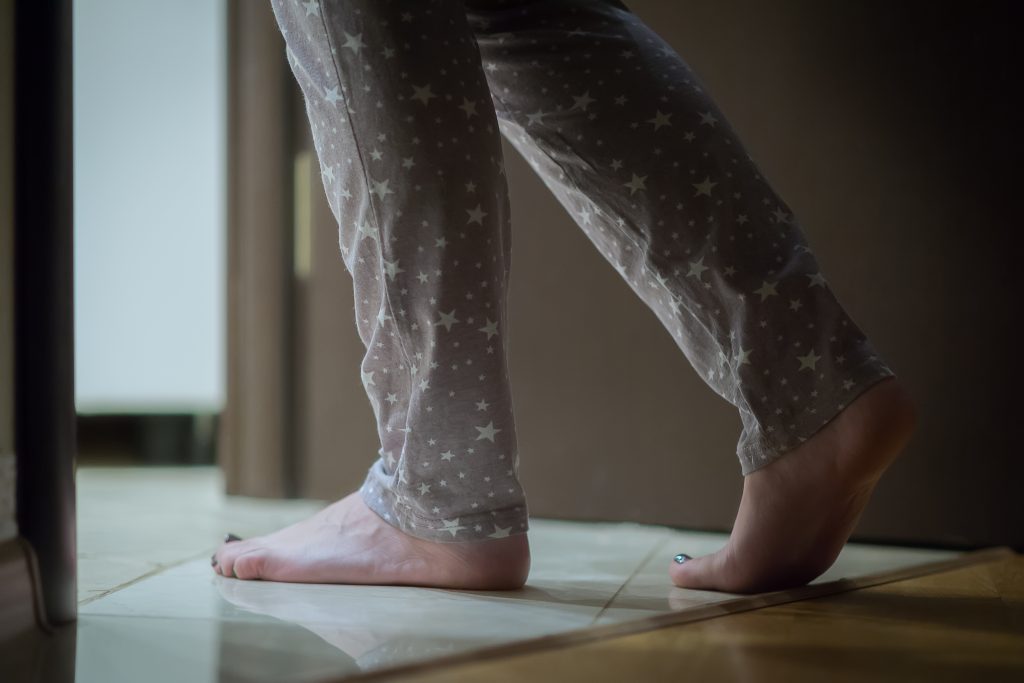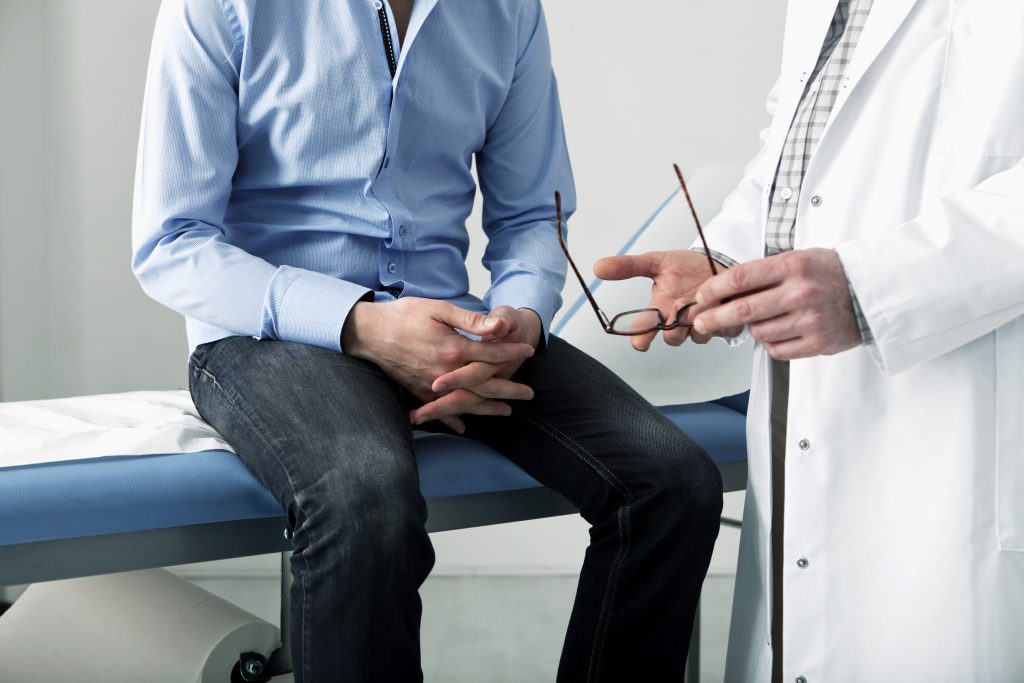July 29, 2021
How to Treat an Overactive Bladder
An overactive bladder can be challenging to live with if it disrupts your daily activities and sleep and compromises your well-being. Fortunately, there are many different treatment options for an overactive bladder that can reduce your symptoms and help you find relief.
Continue reading to learn more about the causes of an overactive bladder and how to stop it from affecting your quality of life.
What Is an Overactive Bladder?
An overactive bladder describes a group of urinary symptoms—the most significant of which is a sudden, urgent, uncontrollable urge to urinate.
“Patients will most often report urgency as the main symptom of overactive bladder. Sometimes even to the point of leakage symptoms which can be very uncomfortable and even embarrassing for the patient,” says Abigail Soto, PA-C a family physician assistant with Healthcare Associates of Texas.
Overactive bladders are caused by a wide range of factors, which is why it’s critical to work with a doctor who can help you pinpoint and treat the root causes of your symptoms. An overactive bladder isn’t usually life-threatening but can lead to complications that affect your well-being, including emotional distress, mental illness, and sleep problems.
What Are Overactive Bladder Symptoms?
You may experience one or multiple symptoms if you are living with an overactive bladder. These symptoms include:
- A sudden urge to urinate that cannot be postponed and is difficult to control
- Frequent urination, usually at least eight times a day
- Urge incontinence or bladder leakage when you cannot get to a restroom quickly enough
- Nocturia, which is waking up at least two times a night to urinate
What Is the Main Cause of Overactive Bladder?
Researchers have not identified one primary cause of overactive bladder because it is caused by a wide range of factors. However, one of the most common causes of an overactive bladder is nerve damage caused by surgery or trauma to the abdomen or pelvis. Nerve damage can cause muscles in the bladder to contract unexpectedly and trigger symptoms of overactive bladder.
“The most common causes of overactive bladder that I have seen are excessive or high caffeine use and patients with multiple medical conditions,” Soto adds.
What Are Other Overactive Bladder Causes?
There are a variety of causes and risk factors that may lead to an overactive bladder. These causes and risk factors include:
- Nerve damage
- Diabetes
- Neurological disorders including stroke and Parkinson’s disease
- Urinary tract infections
- Being overweight or obese
- Hormonal changes and imbalances, such as that which occurs during menopause
- Bladder stones and tumors
- Constipation
- Enlarged prostate
- Weak pelvic muscles
- Use of medications that increase urine production or that must get taken with plenty of fluids
- Drinking alcohol or caffeine products
- Cognitive decline, due to deficits in brain signaling
- Incomplete bladder emptying
“I tend to identify or see overactive bladder more in middle aged to older female patients,” Soto notes.
 Why Do I Have an Overactive Bladder at Night?
Why Do I Have an Overactive Bladder at Night?
An overactive bladder at night is known as nocturia. There are different types of nocturia. Soto emphasizes, “Again, caffeine is a very common culprit in overactive bladder as well as increase fluid intake in the evening.” Nocturia can also be caused by:
- Drinking lots of fluids before bedtime
- Diabetes that is undiagnosed or untreated
- Swelling of the legs
- Sleep disorders such as obstructive sleep apnea
- Congestive heart failure
- Using certain medications, including diuretics, lithium, and phenytoin
- High-sodium diet
- Bladder obstruction
“Other common causes of nocturia besides overactive bladder enlarged prostate or uncontrolled medical conditions like diabetes mellitus,” Soto adds.
The main symptom of nocturia is getting up at least two times in the middle of the night to urinate. Other symptoms include expelling a high volume of urine and feeling lethargic or sleepy during the day.
Dealing with an overactive bladder at night involves addressing the root cause of your nocturia. Your doctor can work with you to treat and reduce symptoms of nocturia. Treatments and interventions may involve drinking less fluid at night, managing diabetes, and consuming fewer high-sodium foods.
How Can I Stop My Overactive Bladder?
The best way to stop an overactive bladder is to meet with your doctor or a urologist who can review your medical history and perform a series of tests and exams to identify the underlying cause of your bladder issues. For example, your doctor may examine your rectum or pelvis and have your urine tested for abnormalities, including infection and traces of blood. Your doctor may also order a series of tests to assess the health and functioning of your bladder.
“When I evaluate a patient with overactive bladder symptoms I always start with a urinalysis and an in-depth history. Then, we discuss possible lifestyle modifications. If the patients’ symptoms are severe and negatively affecting their quality of life, I consider starting them on prescription therapy,” Soto explains.
After running the appropriate tests and diagnosing your condition, your doctor will work with you to treat your overactive bladder and suggest one or more healthy lifestyle changes you can make to improve your symptoms.
How to Treat an Overactive Bladder
Many doctors recommend implementing a series of healthy lifestyle changes before starting any medical interventions for an overactive bladder.
“Some lifestyle habits that may help prevent overactive bladder include maintaining a healthy weight, moderate to low caffeine intake, exercising (including Kegels exercises), and controlling chronic medical conditions,” Soto recommends.
Your doctor may refer to these lifestyle changes as behavioral therapies. Behavioral therapies are often safe and effective for an overactive bladder and produce no side effects.
Behavioral therapies for an overactive bladder include:
- Doing Kegel exercises regularly to strengthen your pelvic floor muscles and urinary sphincter, helping stop involuntary contractions in the bladder.
- Losing excess weight.

- Training your bladder, involving delaying urination for short periods and gradually increasing those times until you start urinating less frequently.
- Scheduling your visits to the restroom, such as once every two hours. This is similar to training your bladder.
- Drinking the right amount of fluid (not too much and not too little). This will result in fewer restroom visits.
- Consuming less alcohol and caffeinated beverages, including coffee and tea.
- Consuming fewer foods known to irritate the bladder, including tomatoes, citrus fruits, and spicy foods.
- Emptying your bladder twice during the same restroom visit.
- Reducing and treating constipation, such as by eating more high-fiber foods and exercising regularly.
- Quitting smoking.
When behavioral therapies and lifestyle changes cannot completely resolve your symptoms, your doctor may suggest another overactive bladder treatment. That may include medications or bladder injections that help relax the bladder. In addition, nerve stimulation may get used to regulate nerve impulses to the bladder, and surgery may be performed to either increase bladder capacity or replace your bladder with an artificial bladder that collects urine outside of the body.
Overactive bladder medication may help reduce the sudden urge to urinate.
“There are many pharmacologic therapies available for overactive bladder including Detrol LA, Oxybutynin, and Toviaz, to name a few,” Soto says.
Other medications your doctor may use include:
- Darifenacin
- Fesoterodine
- Mirabegron
- Solifenacin
- Tolterodine
- Trospium
Women who have gone through menopause may get prescribed vaginal estrogen creams, tablets, rings, or suppositories. These estrogen therapies can help strengthen tissues and muscles in the urethra and vagina to improve symptoms of overactive bladder.
Treating Bladder Conditions at Healthcare Associates of Texas
Soto emphasizes, “The right time to see your doctor about overactive bladder symptoms is when it is affecting your quality of life and limiting what you would normally do.”
Healthcare Associates of Texas is home to a large team of board-certified doctors and medical professionals who can treat bladder conditions, including an overactive bladder. To make an appointment, visit the appointments page.
DISCLAIMER
The information featured in this site is general in nature. The site provides health information designed to complement your personal health management. It does not provide medical advice or health services and is not meant to replace professional advice or imply coverage of specific clinical services or products. The inclusion of links to other web sites does not imply any endorsement of the material on such websites.




